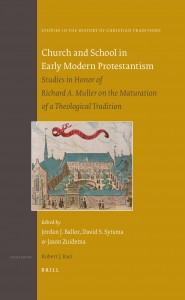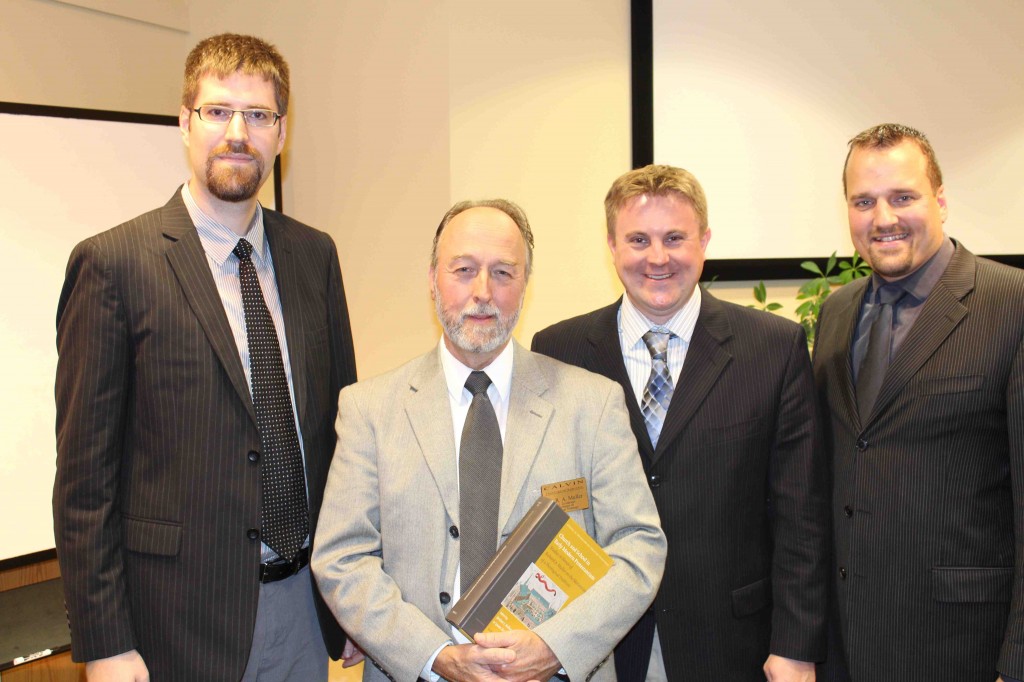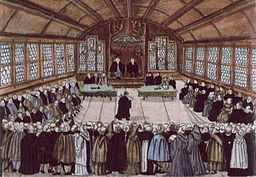Greetings PRDL users and supporters of the Junius Institute,
Just about five years ago, a group of students at Calvin Theological Seminary, with the encouragement and guidance of Dr. Richard Muller, began to collect and share links to primary sources in theology that were increasingly becoming available in digital formats. The original list was limited to sources available on Google Books, and included 331 titles. After proceeding first to a wiki format and later to what is the Post-Reformation Digital Library today, we’ve added more than 4,500 authors and nearly 64,000 titles from digital collections and libraries the world over. There really is nothing else like PRDL out there for early modern theological and philosophical research, and we’re pleased that it has come so far in so short a time.
I’m reminiscing for a couple of reasons. First, I want to thank you for your encouragement, support, and use of the PRDL throughout these years. The whole point of PRDL from the beginning was to make available our individual findings as students and researchers to a broader audience, particularly those that are not blessed with easy access to sources in other venues. Every time you find and download a PDF you found via PRDL that is useful to you in your study, this founding purpose has been fulfilled.
Second, I wanted to let you know that we are at a critical stage in the development and maturation of PRDL. Earlier this year we founded the Junius Institute for Digital Reformation Research at Calvin Theological Seminary to be a formal and permanent home for PRDL as well as other digital research projects. The encouragement from the seminary community has been outstanding, and we’ve been able to develop a variety of projects already this year, including unveiling the Scholastica project, a feature embedded in PRDL that adds a new layer of understanding to the primary sources listed in PRDL.
From the beginning, PRDL and now the Junius Institute have been a labor of love for a group of students, and they will continue to be a passion for us. As many of us have graduated or are graduating, however, the need for financial support to continue focusing on developing digital research tools and methods becomes more significant. For projects like PRDL to be sustainable in the long-term, we need to move toward a model that will fund upkeep, maintenance, development, and improvement.
In the days ahead, we’ll be looking at all of our options for fundraising and development to support the work of the Junius Institute, including PRDL. But as we close out this year, you have a real opportunity to make a difference in the development of digital research on the Reformation era. If you have ever benefited from PRDL or have appreciated the helpfulness of our efforts, please consider making a tax-deductible donation to the Junius Institute at Calvin Seminary. You can make a donation online at Calvin Seminary via this secure form, or you can send a check.
We know that there are many worthy causes that vie for financial support, particularly at this time of year. And yet this truly is an important moment for PRDL and the Junius Institute. Contributions of any size will help show that our efforts mean something to scholars and researchers all over the world.
Even if you aren’t able to make a financial contribution at this time, please consider sharing some thoughts about how the work of the Junius Institute and PRDL has helped you in your work in the comments section below.
Thank you for your support over these years and your continued use of PRDL.
![]()
Todd Rester
Director
Junius Institute for Digital Reformation Research





